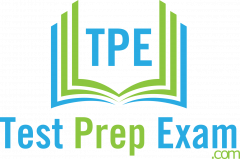UPDATED 2020
Prepare for the PMP Exam
The PMP, short for Project Management Professional, is a certification for project managers that’s recognized by industries globally. If you wish to achieve PMP certification, then you need to be fully prepared for the exam.
The PMP exam is difficult because it doesn’t just require many months of preparation. You also need to draw for your own experience as a project manager to successfully clear the exam.
It comprises of 200 multiple-choice questions that you need to attempt within 4 hours. These questions are everywhere from theoretical, situational to mathematical as well where you may need draw some graphs to support your answers.
The PMP exams questions are designed to measure your ability to solve problems in the real world and see how well you fit the description of a competent project manager. Here are some things you need to keep in mind to perform exceptionally well on the PMP exam.
1. Take Full Advantage of the PMBOK Guide
The PMBOK Guide is extremely important because most of the exam is based on it. Before you get started with other resources to study from, go through this guide and come up with a study plan. Divide it into different sections and allocate one for each week.
You’ll be able to gain an in-depth knowledge about each topic and have more of an idea about what’s to come in the exam. After you’ve managed to understand everything in this guide, you can move on to other study material that will build on the concepts you’ve learned here.
2. Attend PMP Exam Prep Workshops
If you feel like you can get a lot more preparation done in less time if you’re in a classroom setting, then you should sign up for PMP Exam Prep Workshops. You’ll end up learning a great deal more than you would have on your own.
These workshops will also be a great way for you to get in touch with other PMP aspirants in your region and seek assistance from them if you’re struggling somewhere. Exam prep workshops will also help you meet the 35-contact-hours requirement that’s needed to apply for the PMP exam.
3. Take Online PMP Exam Simulators
PMP Exam Simulators are practice tests that are conducted online. They have the same format as the actual exam so that the applicants can be acquainted with it and identify their strengths and weaknesses.
4. Join Study Groups and Discussion Forums
Take all the help you can get from discussion forums and study groups so you don’t miss anything when you’re preparing for your PMP exam. If you’re an active participant in these discussions, not only will you be able to help others learn something they’re having a hard time with, you’ll also get answers for any queries you had in mind.
You can even ask other participants to share any resources they’re studying from and get tips on how to effectively prepare for the exam.
Bottom Line
Now that you’ve learned how you need to prepare for your PMP exam, the only thing that can help you attain a PMP certification is the amount of effort you put in. Create a study schedule and review everything after you’re done studying to do well on your exam.

